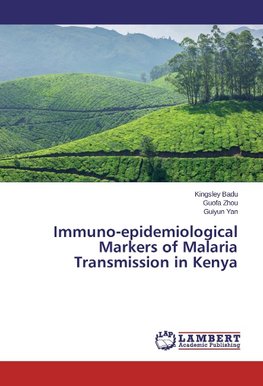
-
 Anglický jazyk
Anglický jazyk
Immuno-epidemiological Markers of Malaria Transmission in Kenya
Autor: Kingsley Badu
Current tools for measuring malaria transmission intensity have limited sensitivity when transmission is low. Robust surveillance systems are needed to monitor reduced transmission and prevent the rapid reintroduction in areas undergoing elimination. Serologic... Viac o knihe
Na objednávku, dodanie 2-4 týždne
66.60 €
bežná cena: 74.00 €
O knihe
Current tools for measuring malaria transmission intensity have limited sensitivity when transmission is low. Robust surveillance systems are needed to monitor reduced transmission and prevent the rapid reintroduction in areas undergoing elimination. Serologic tools based on the antibody response to parasite and vector antigens are potential tools for transmission measurements. This study examined the serologic evidence of vector exposure and malaria endemicity in the western Kenyan highlands along a transmission intensity cline. Total IgG levels to P. falciparum MSP-119 and Anopheles salivary gland peptide gSG6-P1 were measured in an age-stratified cohort during low and high malaria transmission seasons. Regression analysis was performed to examine the association between antibody prevalence and parasite prevalence. Age-specific MSP-119 seroprevalence data was fitted to a simple reversible catalytic model to investigate the relationship between parasite exposure and age.The study reveals the micro-geographic variation in malaria transmission in the highland eco-system; thus validating the utility of Immuno-epidemiological tools in estimating malaria transmission intensity.
- Vydavateľstvo: LAP LAMBERT Academic Publishing
- Rok vydania: 2015
- Formát: Paperback
- Rozmer: 220 x 150 mm
- Jazyk: Anglický jazyk
- ISBN: 9783659720840












